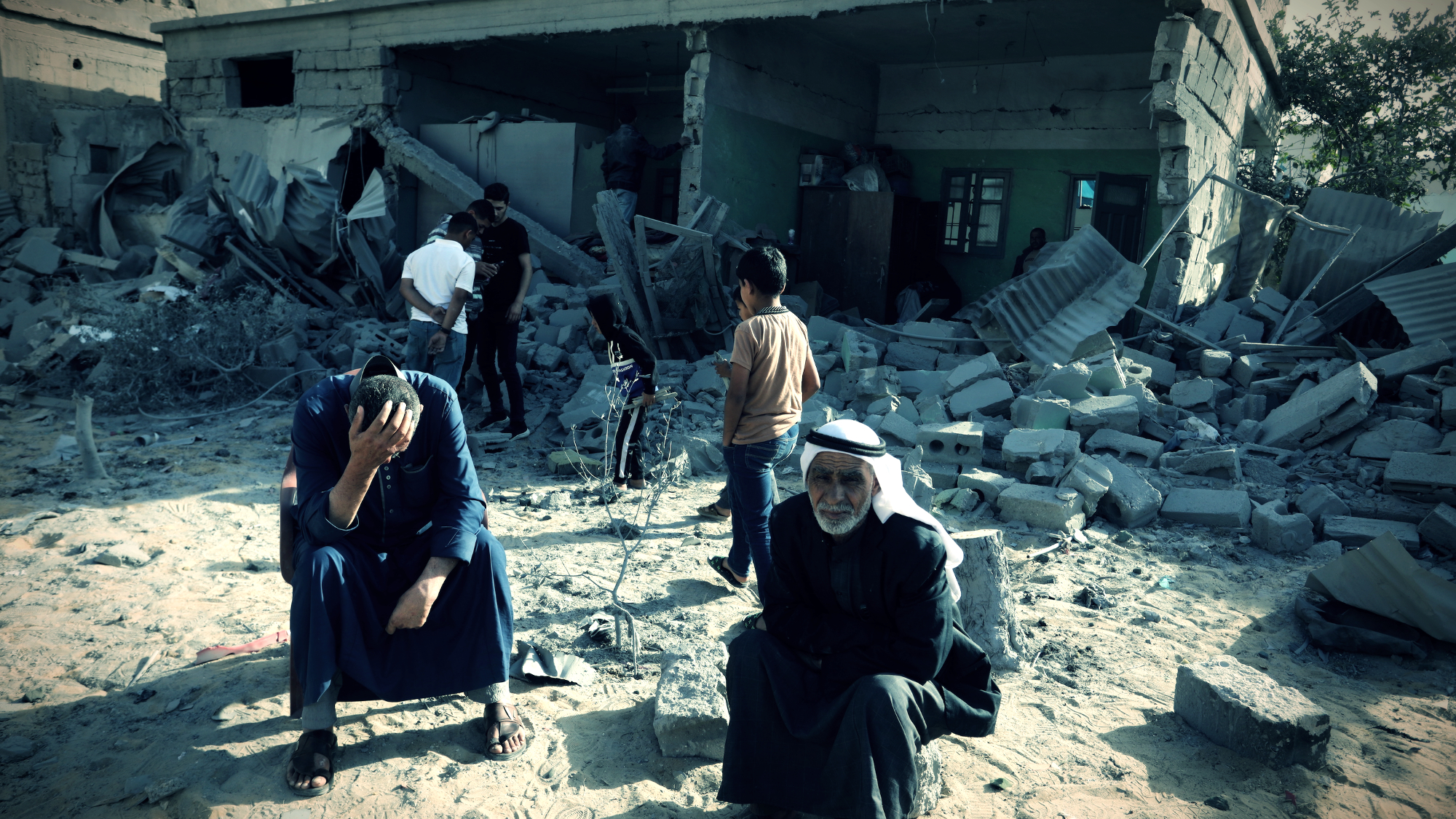Israel warns 100k Gazans to evacuate Rafah
The IDF has threatened to operate with "extreme force"


A free daily email with the biggest news stories of the day – and the best features from TheWeek.com
You are now subscribed
Your newsletter sign-up was successful
What happened
The Israel Defense Forces on Monday ordered about 100,000 Gazans to immediately evacuate parts of Rafah that will be targeted with "extreme force" against Hamas. The Palestinian civilians were told to move to an Israel-declared humanitarian zone called Muwasi. A Hamas delegation left cease-fire negotiations in Egypt on Sunday with no deal in place, raising the chances Israel will launch a full-scale invasion of Rafah, despite international warnings.
Who said what
Israel has begun a "limited scope operation to temporarily evacuate residents in the eastern part of Rafah," IDF spokesperson Lt. Col. Nadav Shoshani said Monday. Israeli Defense Minister Yoav Gallant warned Sunday of a "powerful operation in the very near future in Rafah" following a Hamas rocket attack on the Kerem Shalom border crossing that left three IDF soldiers dead and the crossing closed to humanitarian aid.
U.S. Defense Secretary Lloyd Austin "expressed his condolences for the IDF soldiers killed" at Kerem Shalom in a phone call with Gallant, the Pentagon said, but he also "stressed the need for any potential Israeli military operation in Rafah to include a credible plan to evacuate Palestinian civilians and maintain the flow of humanitarian aid."
What next?
"So many people here are displaced and now they have to move again," Nidal Alzaanin, one of the 1.4 million Gazans forced to seek refuge in Rafah, said to The Associated Press, "but no one will stay here. It's not safe."
The Week
Escape your echo chamber. Get the facts behind the news, plus analysis from multiple perspectives.

Sign up for The Week's Free Newsletters
From our morning news briefing to a weekly Good News Newsletter, get the best of The Week delivered directly to your inbox.
From our morning news briefing to a weekly Good News Newsletter, get the best of The Week delivered directly to your inbox.
A free daily email with the biggest news stories of the day – and the best features from TheWeek.com
Peter has worked as a news and culture writer and editor at The Week since the site's launch in 2008. He covers politics, world affairs, religion and cultural currents. His journalism career began as a copy editor at a financial newswire and has included editorial positions at The New York Times Magazine, Facts on File, and Oregon State University.
